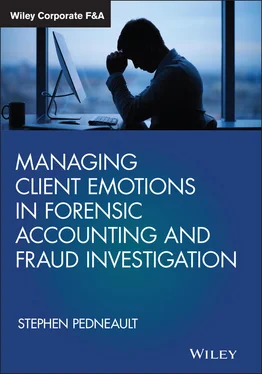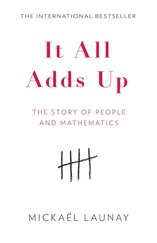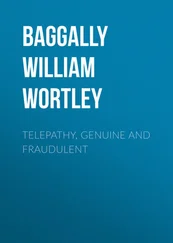The brother understood that the estate and trust had to be handled through attorneys and the probate court, because that was how these things got resolved civilly. However, he said, it was just going to cost more time and much more money, and the three men, especially Tim, would likely never face any genuine consequences for their actions. The brother ended by saying it would be best if he were to go far away and disappear into the woods so that he wouldn't do anything rash. The brother rose from his seat, punched the table, and then threw open the conference room door and went down the hallway toward the exit. We watched him light up a cigarette on the rear lawn beyond the parking lot.
The sister said her brother tended to get very angry, especially when he hadn't been drinking. Most of the time he was drunk; however, today he appeared sober, or at least less drunk than usual. She said that when her brother got angry like this, he needed alone time, since nothing could be said or done to calm him down. She said he would return to the meeting when he was ready, likely after a few cigarettes and perhaps a drink from something he had stashed away on his person. She said we had nothing to fear from him, since his anger was directed toward Tim, the trustee, and the trustee's son, not us. Her brother had not visited much during their mother's last few years. He was often gone without contact for months at a time. She said it was best for her brother to leave again for a while so that he didn't act on his anger.
We recognized that our meeting was far from over. This was just an intermission. Up until that moment, all we had obtained was their stories about why we had been called to this meeting. We still needed to determine how to proceed, what services we were to perform, and how our work would help the attorney resolve the estate and trust matters, bringing them the closure they so badly needed. These issues needed to be discussed today, before the brother went missing again.
The meeting provided good insight into the sister and brother's characters – and into the emotions we would likely encounter as we worked to help resolve their matter.
In the course of working on this matter over the subsequent year, we never heard from the brother again. We dealt mainly with the sister and her attorneys. We met with the sister a dozen times and spoke to her at times almost daily. She was frustrated by the delays she encountered and angered by the fact that nothing was happening while the funds continued to be diminished month after month. We were there to listen and help her work through the issues until her case was resolved.
In time, through aggressive efforts by the sister's new attorney, the fiduciaries were removed, the attorney for the fiduciaries was ordered to return the excess fees they had paid to themselves, and the siblings were finally able to receive the remains of their inheritance. The sister sent us a handwritten letter expressing her appreciation for our support throughout the ordeal, and attributed our involvement as the one factor that had prevented her from going insane during the pendency of her matter.
A case like this illustrates how client emotions are inseparable from the facts of the fraud engagement. When dealing with these types of cases, fraud examiners should recognize that fraud, like any other type of crime, is very personal to the victim, and clients can become very emotional as they work through the process toward resolving their matter.
Clients want to tell their story. My advice is: Let them. Set up an in‐person meeting, clear your schedule, and prepare to be their audience. They will provide details about their lives that have nothing to do with the present matter, such as issues they experienced during childhood, family relationships, breakups, disappointments, financial strains, pets, and more. They feel the details are important, so let them tell their story on their terms. Listen and take notes. Ask questions to clarify things, but try to keep your interruptions to a minimum. At some level, the client telling you their full story is therapy for them.
Either they will eventually get to the point in discussing the present matter or, once they feel they have provided you with all the details, they will stop talking. This moment is when you can guide them to discussing the present matter – the reason they need your services. It is important that, even if you make this transition for them by focusing them on the issue at hand, you do not make them feel as if the details they have provided up to that point have been unimportant or irrelevant. Recognize that it is all important and relevant to them.
Often, clients will ask you what you think of all of the details they provided. It is critical for you to be genuine, objective, and respectful, regardless of how irrelevant those details may seem. Building a rapport with clients starts with listening to their story, and sometimes the little details that appeared irrelevant in the beginning can prove useful later in the fraud examination.
In the end, every fraud examiner wants to know the same two things – why the individual needs a fraud examiner and what the individual hopes will be accomplished by using a fraud examiner. To that end, the examiner may be tempted to borrow an approach from the 1950s series Dragnet : “Just the facts, ma'am.” That's certainly an approach I understand: Just tell me why you called my firm and what you hope we can do to help you resolve your matter. Let's keep this meeting as brief as possible . However, I have found that that approach is simply not effective in reality.
My experience has shown me that, as much as I may want to surgically extract the pertinent facts and keep irrelevant conversation to a minimum, that strategy is not successful in helping to resolve the client's matter. It's far more effective to take a little extra time to listen to their full story.
Listening to clients’ stories will not be limited to that first interaction. I use every interaction as an opportunity to interview the individual. Some interviews are more formal than others, but if I approach every one as an opportunity to learn more information, I may discover details that were omitted in previous meetings, which will only help me in my fact‐finding process. Sometimes, a subsequent opportunity to ask questions and listen to a client's responses has led to my discovering details of other activities that I'd known nothing about up to that point. This proved to be the case in the following engagement.
We were working with counsel on a matter involving a school finance manager who appeared to be stealing funds from the school. Families were sending tuition and other payments to the school, but the funds were not reaching the school's bank accounts. Although the school's enrollment was strong, the school was in poor financial health, and its reserve funding was depleted.
We scheduled a time to meet with the finance manager at the school, gain an understanding of the school's finances, and obtain access to all the financial records, including bank statements, paid invoices, and deposit details. When we arrived, a very nervous administrative employee who worked with the finance manager met with us. She said the finance manager had not come to work as planned, and that if we wanted to meet with the finance manager, we would have to reschedule for another day. It was obvious that the woman was nervous, as well as caught in a difficult position, since her supervisor hadn't provided any notice or explanation for her absence. We used the interaction to provide the administrative employee with assurances that we simply needed her help and the fact that the finance manager had not shown up was in no way a reflection on the administrative employee. We then sat down with her to gain a general understanding of the school's finances, systems, and operations. In other words, we started to establish a rapport with her.
Читать дальше












